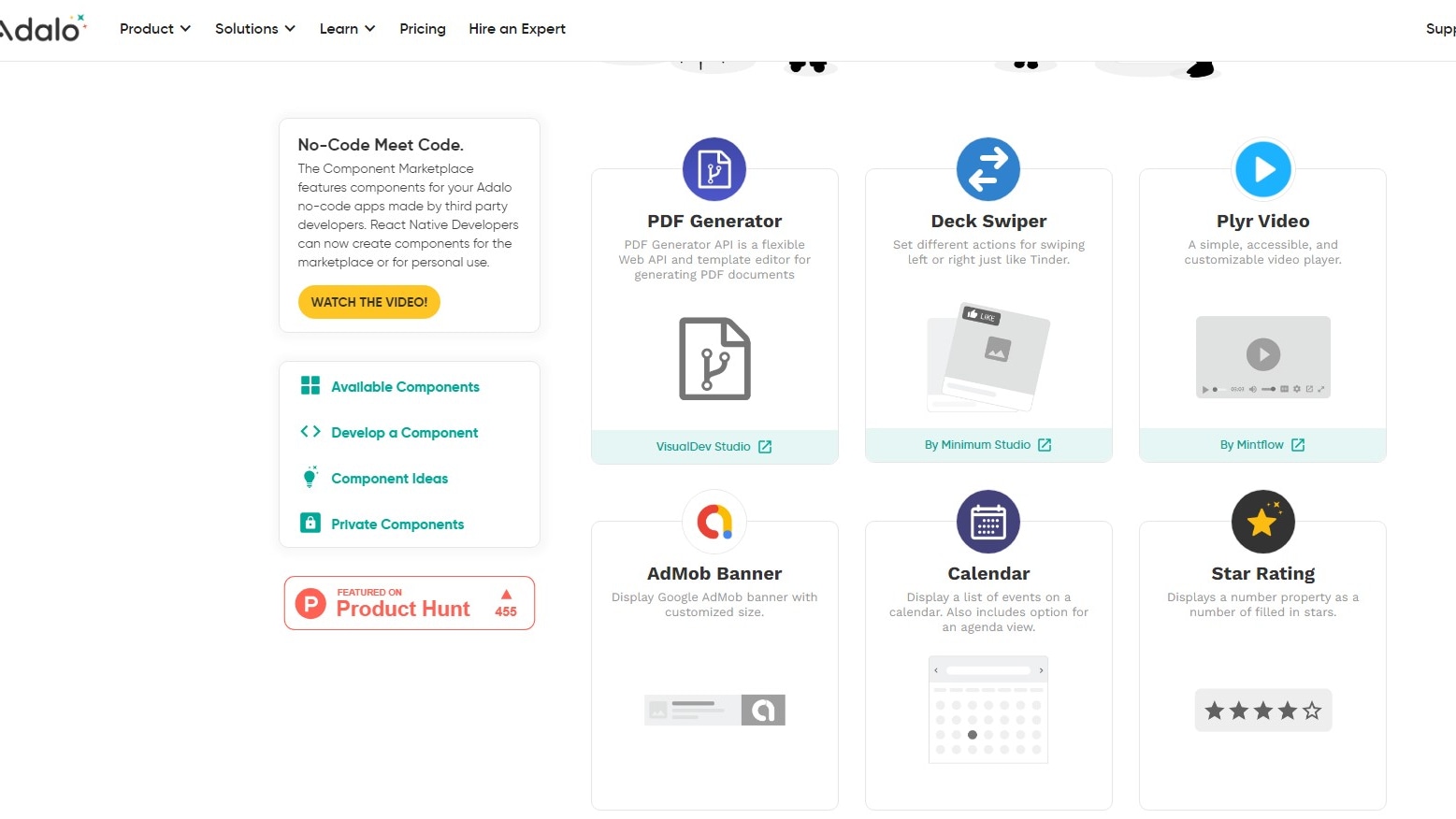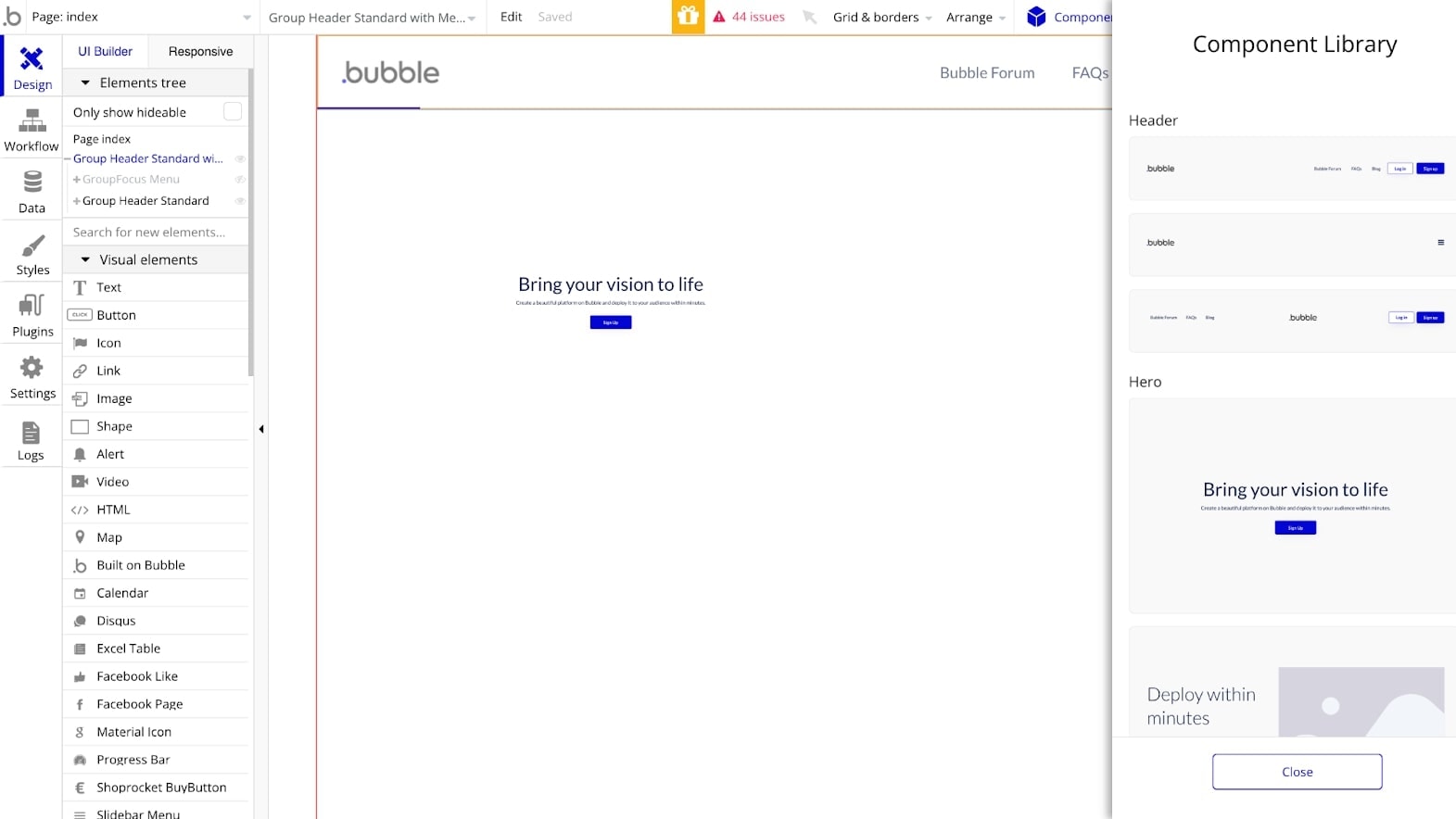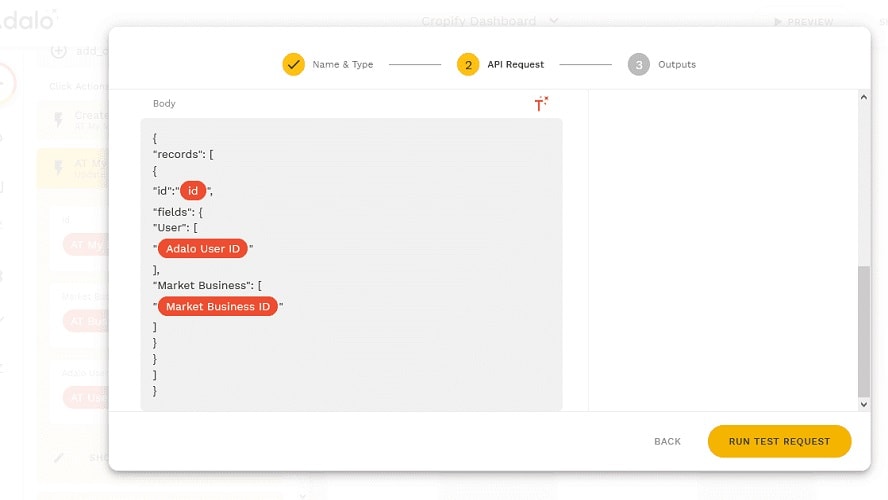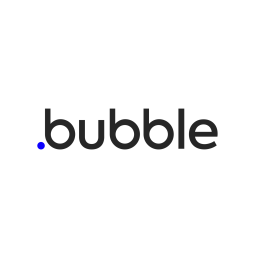Adalo vs Bubble: Which tool is best for no-code development?
- 01Adalo vs Bubble: overview
- 02What's the difference between Adalo and Bubble?
- 03Adalo pros and cons
- 04Bubble pros and cons
- 05Adalo compared to Bubble
- 06Bubble compared to Adalo
- 07Features comparison
- 08Adalo vs Bubble: Which is the best for your business?
- 09Promotions on No-Code Development software
- 10Alternatives to Adalo & Bubble
Save up to $1,436 on Bubble
Save up to $1,436 on Bubble
The rise of no-code app development platforms has put Adalo and Bubble in the spotlight of the industry. Both platforms offer the ability to create web and mobile applications without requiring skills. This article provides a comparison of Adalo and Bubble, exploring their features, capabilities, and use cases. By considering these factors, you can make a decision about which platform is best suited for your needs.
Adalo is an option for individuals without programming experience who want to build simple apps. It is user-friendly and easy to learn. On the other hand, Bubble is better suited for businesses of all sizes that require web application development with the potential for scalability. By evaluating the aspects outlined in this comparison, you can confidently choose the suitable no-code platform for your app development project.
Adalo vs Bubble: overview
Adalo and Bubble stand as two significant contenders in the realm of no-code app development, each with unique advantages catering to distinct user requirements.
Adalo is celebrated for its user-friendly interface and rapid app prototyping capabilities. It excels in enabling users to design visually appealing and functional apps quickly. Adalo offers a range of pre-built components and templates, making it a preferred choice for those looking for a streamlined app development process. On the other hand, Bubble provides a comprehensive platform for app development, with advanced features for creating complex and data-driven applications. Bubble's visual development environment allows users to build apps with intricate logic and sophisticated integrations.
Choosing between Adalo and Bubble necessitates a thorough consideration of your specific app development needs, your level of technical expertise, and the complexity of the application you aim to create. Adalo is ideal for rapid prototyping and simpler applications, while Bubble is better suited for users requiring more advanced and customized app development.
What's the difference between Adalo and Bubble?


Adalo is a platform that empowers individuals to effortlessly build and design mobile and web applications without any coding skills. With its user drag-and-drop interface and templates, Adalo makes it accessible for anyone, even those without technical expertise, to create their own apps. Moreover, Adalo offers a range of features such as data integration, user management, and analytics.
The Bubble platform is a code-free solution that gives users the ability to construct web applications and websites with minimal effort. By utilizing its user drag-and-drop editor, people can create appealing applications while utilizing reusable components and data models. Additionally, Bubble provides access to APIs that drive web applications, enabling anyone to develop robust applications with just a few clicks. Bubbles' vast library of templates also allows for the creation of projects from scratch with ease!
When it comes to simplicity and ease of use, Adalo excels with its graphical user interface specifically designed for app creation through drag-and-drop functionality. On the other hand, Bubble is a versatile platform that offers a wider range of capabilities; however, it may require some familiarity due to its advanced features. Adalo lacks the capability to integrate third-party authentication, while Bubble allows users to log in using their Facebook, Google, or Apple accounts.
Unlike Adalo, Bubble also offers a development feature that allows up to 40 collaborators to work together simultaneously. This feature enables real-time collaboration by assigning access rights and tasks. Additionally, unlike Adalo, Bubble has a built-in data tracking feature that provides real-time data feeds and connects with analytics and customer management services. Adalo does not include a built-in version control and backup feature; however, Bubble offers a solution that allows users to build, experiment, and test on front ends. It also provides deployment with the added advantage of being able to revert to previous versions if needed.
30% off across all plans for 1 year on Bubble
Get 30% off across all plans for 1 year on Bubble and up to $1,436 savings with Secret.
Adalo pros and cons
What are the advantages of Adalo?
- No-code development: Adalo is a no-code platform, making it accessible to individuals without extensive programming knowledge. It allows users to create apps visually without writing code.
- Rapid prototyping: Adalo is well-suited for quickly prototyping app ideas, enabling users to bring their concepts to life and test them with minimal time and effort.
- Customization: It offers a wide range of customizable components and templates, allowing users to tailor the appearance and functionality of their apps.
- Cross-platform compatibility: Adalo supports the development of apps for both iOS and Android, helping reach a broader audience with a single development effort.
- Integration options: Adalo provides integration capabilities with various third-party services and APIs, expanding the functionality of the apps created on the platform.
What are the disadvantages of Adalo?
- Complexity limitations: Adalo is best suited for simpler app projects. Complex applications may face limitations in terms of customization and functionality.
- Limited advanced logic: While Adalo offers some flexibility, it may lack the advanced logic and complex workflows required for certain app functionalities.
- Pricing: Adalo's pricing plans can become expensive as your app scales, potentially making it less cost-effective for larger projects.
- Learning curve: Despite being a no-code platform, there is still a learning curve involved in mastering Adalo's features, especially for those new to app development.
- Limited data storage: Adalo has limits on data storage, which may not be sufficient for apps with extensive data needs. Users may need to consider external data storage solutions for larger projects.
Compare Adalo to other tools
Bubble pros and cons
What are the advantages of Bubble?
- No-code development: Bubble is a no-code platform, allowing individuals without coding experience to create web applications using a visual interface.
- Customization: Bubble offers a high degree of customization with a wide range of visual elements, workflows, and data types, enabling the creation of complex and tailored applications.
- Database integration: It provides a built-in database, simplifying data management within the app and supporting dynamic content.
- Extensive plugin library: Bubble has a rich library of plugins and integrations, enhancing the functionality of your applications with a variety of third-party services.
- Scalability: Bubble can handle more complex and data-intensive applications, making it suitable for both simple prototypes and fully functional, scalable apps.
What are the disadvantages of Bubble?
- Learning curve: Despite being a no-code platform, Bubble has a steep learning curve due to its extensive features and capabilities. Users may need time to master the platform.
- Pricing: While Bubble offers a free plan, scaling up can become expensive. The cost may not be sustainable for larger or resource-intensive projects.
- Performance: Performance issues can arise in more complex applications, and users may need to optimize their workflows to maintain speed and responsiveness.
- Limited mobile responsiveness: Bubble's mobile responsiveness can be a challenge, requiring additional design and development work to ensure a seamless mobile experience.
- Vendor lock-in: As with any no-code platform, there is a level of vendor lock-in with Bubble. Transitioning your app to a different platform may be challenging if the need arises in the future.
Compare Bubble to other tools
Adalo compared to Bubble
When comparing Adalo and Bubble, Adalo stands out for its user-friendly interface and rapid app prototyping. It excels in simplifying app development for users with varying levels of experience. Adalo offers pre-built components and templates, making it ideal for quickly creating functional apps.
Adalo's pricing structure, although flexible, can be more budget-friendly than Bubble, particularly for smaller projects and individuals. Its intuitive design tools and a growing library of resources reflect its value for those seeking to build apps without extensive coding knowledge.
One of Adalo's standout features is its focus on user-friendliness and speed in app creation. It provides a smoother learning curve and faster prototyping, making it an appealing choice for those who prioritize quick and efficient app development.
Is Adalo better than Bubble?
Deciding whether Adalo outshines Bubble depends on your specific app development requirements. For those who value a user-friendly interface, rapid prototyping, and a budget-friendly pricing structure, Adalo often emerges as the preferred choice, despite certain limitations.
Adalo's ease of use and flexibility make it suitable for a wide range of users, particularly those with limited coding experience. Its growing library of templates and components can streamline app development. However, for individuals or organizations with more complex app development needs and a willingness to invest in a steeper learning curve, Bubble might be the preferred choice due to its extensive customization and scalability options.
What is Adalo best used for?
Adalo finds its best application among users seeking a user-friendly and no-code platform for app development. It's particularly advantageous for those who want to create apps quickly and efficiently without in-depth coding knowledge.
Adalo is ideal for prototyping and building apps with custom workflows, making it a valuable tool for individuals and small businesses looking to bring their app ideas to life. Its intuitive interface and a range of pre-built components and templates enable users to design visually appealing and functional apps. Whether you're a startup entrepreneur or an individual with a creative concept, Adalo can help you turn your ideas into reality without the complexities of traditional app development.
Can Adalo replace Bubble?
Replacing Bubble with Adalo can be a strategic decision, particularly for those looking for a more user-friendly and rapid app development experience. While Bubble offers advanced customization and complex application capabilities, Adalo shines in its simplicity and ease of use. It caters to users seeking quick app prototyping and development without extensive coding skills.
Adalo's visual interface and pre-built components can be particularly appealing to individuals and small businesses with app development needs. While Bubble may be better suited for those with more advanced and complex project requirements, Adalo offers a smoother learning curve and streamlined development, making it an excellent choice for various app development scenarios.
Is Adalo cheaper than Bubble?
In terms of pricing, Adalo typically presents a more budget-friendly choice compared to Bubble. Adalo’s pricing includes a free plan with basic features and reasonably priced paid plans, making it an attractive option for individuals and organizations with various budgets.
On the other hand, Bubble's pricing can significantly increase as you scale or require additional features. This cost structure is often reflective of Bubble's more extensive customization and complex application capabilities. While Bubble may be a preferred choice for those seeking advanced and intricate app development, smaller organizations and cost-conscious users may find Adalo to be a more budget-friendly option for their app development needs.
Is there a better No-Code Development software than Adalo?
When evaluating Adalo for app development, it's essential to explore alternative no-code and low-code platforms to find the best fit for your specific needs.
Several notable alternatives to Adalo in the no-code/low-code app development landscape include Bubble, OutSystems, Appy Pie, Airtable, and Mendix.
The selection of the ideal app development software hinges on your project's unique requirements, complexity, and objectives. If you prioritize a user-friendly interface, quick prototyping, and simplicity, Adalo may be the right choice. Nevertheless, considering these alternatives can provide valuable insights and help you make a well-informed decision that aligns with your specific app development needs.
Bubble compared to Adalo
When comparing Bubble to Adalo, Bubble distinguishes itself as a versatile and complex app development platform. It offers extensive customization and capabilities suitable for a wide range of app development needs. Bubble's pricing plans cater to users with varying project sizes, providing scalability for diverse development requirements.
One of Bubble's standout features is its depth, encompassing advanced customization, intricate logic, and complex workflows. This multifaceted approach is particularly advantageous for users and organizations seeking to create highly tailored and data-driven applications.
While Adalo shines in simplicity and rapid prototyping, Bubble excels in offering a more comprehensive and intricate platform, making it an excellent choice for those with complex app development projects and the need for advanced customizations.
Is Bubble better than Adalo?
Deciding whether Bubble holds an advantage over Adalo depends on a comprehensive evaluation of your unique app development requirements and priorities. For some, Bubble's appeal lies in its extensive customization, intricate logic capabilities, and flexibility for complex app projects. Its robust feature set encompasses a wide array of development aspects, which can be valuable for those with advanced app development needs.
For example, individuals or organizations seeking to create highly tailored, data-driven applications with complex workflows often find Bubble to be a strong contender. However, it's essential to recognize that the notion of "better" is subjective in the context of app development platforms. What excels for one project may not align with the specific needs and goals of another, underscoring the importance of considering your project's individual demands when making this decision.
What is Bubble best used for?
Bubble is optimally employed for developing complex and highly customized web applications. It is particularly advantageous for developers, startups, and organizations with specific requirements, extensive technical skills, and the need for intricate application logic.
For instance, businesses looking to create data-driven, interactive, and custom web applications can rely on Bubble's visual development environment to build applications with complex workflows, databases, and integrations. Furthermore, Bubble is an excellent choice for startups and enterprises seeking a platform for scaling their software products with advanced features and unique functionalities. It provides a holistic development solution for those aiming to consolidate their app development efforts and bring sophisticated web applications to life.
Can Bubble replace Adalo?
The feasibility of Bubble replacing Adalo depends on your specific app development requirements and objectives. In scenarios where the needs involve rapid prototyping, user-friendliness, and simplicity in app creation, Adalo can certainly serve the purpose.
However, if your app project demands extensive customization, complex logic, and the ability to build highly tailored applications, Bubble might be indispensable. For instance, individuals or organizations aiming to create intricate, data-driven, and highly customized web applications may find Bubble's specialized features irreplaceable, even if it requires a steeper learning curve compared to Adalo.
Is Bubble cheaper than Adalo?
In terms of pricing, Adalo typically offers a more budget-friendly choice compared to Bubble for certain app development projects. Bubble provides a free plan and reasonably priced paid plans, making it an appealing option for individuals and small organizations with budget constraints.
On the other hand, Bubble's pricing structure can become more expensive as you require more advanced features or scale up your app development. Bubble's pricing may align with more extensive projects and organizations with specific app development needs. While Bubble offers a user-friendly and rapid app prototyping experience, Adalo provides a more budget-friendly alternative for those who prioritize affordability and budget-conscious app development.
Is there a better No-Code Development software than Bubble?
When considering Bubble for app development, it's wise to explore alternative no-code and low-code platforms to ensure you find the best fit for your specific needs.
Several notable alternatives to Bubble in the no-code/low-code app development landscape include Adalo, Zapier, Appy Pie, Make, and AppSheet.
The selection of the ideal app development software depends on your project's unique requirements, complexity, and objectives. If you prioritize extensive customization and have complex app development needs, Bubble might be the right choice. However, considering these alternatives can provide valuable insights and help you make a well-informed decision that aligns with your specific app development requirements.
30% off across all plans for 1 year on Bubble
Get 30% off across all plans for 1 year on Bubble and up to $1,436 savings with Secret.
Features comparison
Adalo Takes the Lead Against Bubble for Ease of Use

When it comes to ease of use, both Adalo and Bubble prioritize user-friendliness for newcomers. However, Adalo holds a slight advantage in this aspect. Adalo boasts an exceptionally intuitive interface with a drag-and-drop feature, making app design and deployment accessible even to beginners. Its no-code approach empowers users to create functional apps without technical expertise.
On the other hand, Bubble offers a visual programming platform, but its extensive customization options result in a steeper learning curve. Mastering Bubble's interface may require more time investment. While both platforms emphasize usability, Adalo's simplicity and rapid prototyping make it more welcoming for those new to app development.
Bubble’s Integration Capabilities are More Extensive than Adalo’s

When it comes to integration capabilities, Bubble outshines Adalo. Bubble's robust workflow engine enables seamless integration with numerous third-party APIs and services, from customer support software to ecommerce platforms to payment gateway systems, enhancing its adaptability to diverse business requirements. It boasts an extensive library of plugins and pre-built functions, a significant advantage for synchronizing software with existing tech infrastructure.
While Adalo provides several integrations, its scope isn't as wide as Bubble's, and some popular services may necessitate workarounds or remain unsupported. Therefore, for businesses emphasizing highly interconnected systems, Bubble offers greater flexibility and a more comprehensive solution for seamless integrations into their tech ecosystem.
Bubble Provides Superior Database Management than Adalo

Both platforms offer database management systems for data collection and storage, but Bubble stands out with its robust capabilities. Bubble allows custom data type definitions, data object relationship creation, and complex query execution. In contrast, while Adalo supports database setup and configuration, it doesn't match the advanced functionality of Bubble's database management.
Bubble's database capabilities are well-suited for users with complex data handling needs, offering a more extensive set of tools for designing and managing data structures. Adalo, while capable, may be a better fit for simpler database requirements where the full scope of Bubble's features isn't necessary.
Adalo is More Straightforward for Custom Actions Compared to Bubble

Adalo's custom actions feature surpasses Bubble's 'Full Control' in user-friendliness. Adalo enables the effortless enhancement of app functionality through custom actions such as email sending or database updates, activated by user events or button clicks. In contrast, while Bubble grants control over user interactions, its processes can be complex and challenging for some users to grasp.
Adalo's custom actions simplify the expansion of app capabilities, making it a more accessible choice for users looking for straightforward ways to enhance their apps without delving into intricate programming. Bubble, while powerful, may require a steeper learning curve to achieve similar results.
Adalo’s Maps Component is Superior Compared to Bubble

Adalo gains an edge with its Maps component, allowing users to incorporate interactive maps in their apps. This feature permits location searches and viewing on the map, with customization options to match the app's aesthetics. While Bubble offers customization, it lacks a dedicated mapping component like Adalo's.
Adalo's specialized Maps component makes it an excellent choice for users seeking an integrated and user-friendly way to include interactive maps in their applications, offering a feature that Bubble, while versatile, doesn't provide directly.
Adalo and Bubble Offer an Equally Powerful Drag-and-Drop Editor

Adalo and Bubble both offer user-friendly drag-and-drop editors for app design, enabling the creation of visually attractive apps without coding. They provide diverse components and design choices for customization. However, Bubble excels in flexibility, enabling the development of pixel-perfect designs with responsive layouts and animations.
While both tools make app design accessible, Bubble's advanced design capabilities cater to users seeking intricate and responsive designs for their apps, making it a valuable choice for those with precise aesthetic and interactive requirements.
Bubble Excels Ahead of Adalo at Collaboration and Team Development

In terms of team collaboration and development, Bubble surpasses Adalo. Bubble offers extensive collaboration tools, allowing team member invitations, role and permission assignments, and real-time collaborative work. This seamless collaboration facilitates effective coordination in the development process, a feature less pronounced in Adalo.
Bubble's emphasis on team collaboration makes it an excellent choice for projects that require multiple contributors working cohesively, ensuring efficient and synchronized progress throughout the development journey, an aspect where Adalo's feature set is relatively less robust.
Subscribe to our newsletters.
No FOMO here. Stay up-to-date on all the latest deals and news with our monthly newsletter straight to your inbox like 127,000+ entrepreneurs (+ Get 10% off on on our Premium Membership!)
Adalo vs Bubble: Which is the best for your business?
Adalo is the best tool for you if:
- You are interested in developing applications without any coding experience. This platform offers a no-code interface that allows you to build apps effortlessly
- You're looking to create an app that functions seamlessly on both Android and iOS devices, this is the solution for you. It supports platform development
- You prioritize customization and want your app to have a design. With this platform, you can achieve precision in your app's appearance
- In order to ensure functionality for your app, it is essential to have real-time data synchronization and integration with APIs. Adalo provides these features
- You are someone who values a fast-paced development process. With this tool, you can quickly. Test the features of your app
Bubble is the best tool for you if:
- You have a web application concept and seek a visual programming platform to turn it into reality
- Your goal is to create web applications that are both dynamic and interactive, incorporating logic and workflows
- You’re looking to enhance the functionality of your app where it's crucial to integrate with third-party services and APIs
- You are looking to start with built plugins and templates that can greatly expedite your development process
- You’re looking for rapid application development that enables you to prototype and iterate your ideas
30% off across all plans for 1 year on Bubble
Get 30% off across all plans for 1 year on Bubble and up to $1,436 savings with Secret.
Alternatives to Adalo & Bubble
Promotions on No-Code Development software
Start saving on the best SaaS with Secret.
Secret has already helped tens of thousands of startups save millions on the best SaaS like Adalo, Bubble & many more. Join Secret now to buy software the smart way.














